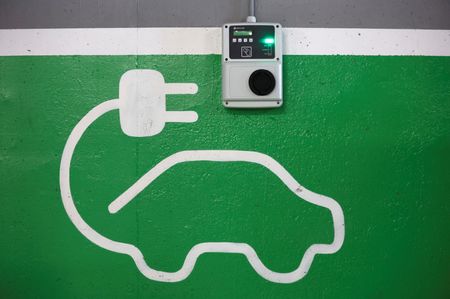TRENTON, NJ – New Jersey Governor Phil Murphy and New York Governor Kathy Hochul might not be happy today after New York Congressman Hakeem Jeffries said the quiet part out loud about their push to force residents to buy electric vehicles.
New Jersey wants to ban gas powered vehicles by 2035, but Jeffries issued a warning on X today.
“It’s a scam.”
This comes after President Donald Trump showcased a line of Tesla’s electric vehicles at the White House.
In a stunning revelation that has sent shockwaves through political and automotive circles, House Minority Leader Hakeem Jeffries (D-N.Y.) reportedly let slip what critics are calling the “quiet part” of New York and New Jersey’s aggressive push to mandate electric vehicle (EV) adoption. During a closed-door meeting with party strategists earlier this week, Jeffries allegedly admitted that the initiative—touted as a cornerstone of progressive climate policy—is less about saving the planet and more about peddling luxury vehicles that remain far beyond the financial reach of most Americans.
“It’s all a scam,” Jeffries is said to have remarked, according to sources familiar with the conversation who spoke on condition of anonymity. “We’re not forcing people into affordable electric cars to help the environment. We’re pushing luxury models most folks could never dream of affording.”
The comments, which have yet to be officially confirmed by Jeffries’ office, come at a time when both New York and New Jersey have doubled down on ambitious mandates requiring a rapid transition to EVs. New York Governor Kathy Hochul and New Jersey Governor Phil Murphy have championed policies aiming for 100% zero-emission vehicle sales by 2035, aligning with broader Democratic goals to combat climate change.
Yet, critics have long argued that the infrastructure, cost, and practicality of such a shift remain woefully out of touch with the realities faced by working-class families.
Jeffries’ alleged admission appears to bolster those criticisms.
While affordable EV options remain scarce, the market has been flooded with high-end models from brands like Tesla, Rivian, and Lucid—vehicles with price tags often exceeding $70,000, well above the average American’s budget for a car. Data from the U.S. Bureau of Labor Statistics indicates that the median household income in 2024 hovered around $74,000, meaning many families would need to spend nearly an entire year’s earnings to purchase one of these touted “green” machines.

